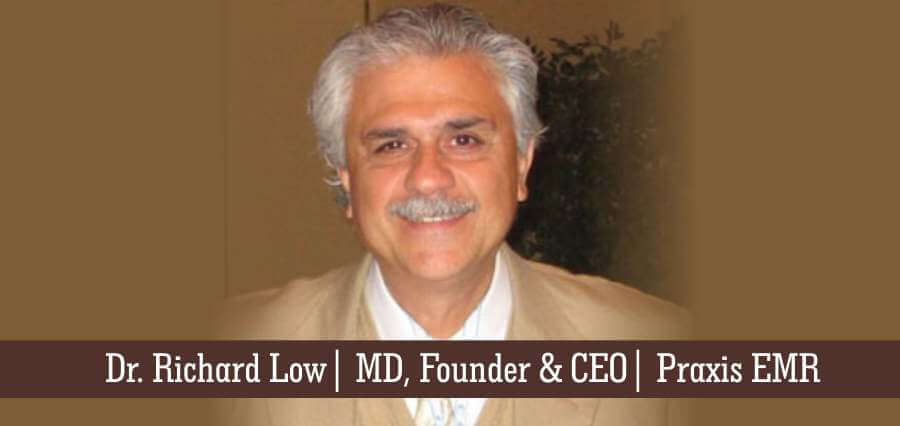The EMR-EHR industry is in disarray. Yes, there are solutions available out there, but they are all based on boilerplate, templates, and picklists, and have decreased the quality of medicine, increased its costs and driven doctors’ crazy in the process. Here comes PRAXIS EHR to rescue with its unique AI technology that resolves the problems with ease.
Many recent studies show that there is a recent influx of physician burnout, and this increase in burnout coincides directly with the rise of EHR use. Additionally, EHR physician user satisfaction rates are very low across the board. There are 2 primary reasons for this:
Every physician is unique in how they think, practice, and chart. Even physicians who work side by side in the same practice think, practice, and chart differently. It’s literally impossible for templates to account for all of this variation between physicians, and the result is templates boxing the physician in and trying to transform them into something they are not.
The majority of the Big Brand EHRs first started as billing companies who then used the same technology to develop an EHR on top of the billing software. Templates work amazing for accounting. Checkboxes, bullet points, drop-down lists, and numerous different fields and windows are exactly what are needed for great billing. The problem is that medicine is not billing, and thus requires a completely different approach and technology. By using the same technology, these vendors have all attempted to jam a round peg into a square hole.
With the new government MIPS/MACRA regulations, the issue has worsened dramatically. The government’s overall goals are lofty and correct. However, the problem lies squarely within the EHR vendors, who have not been able to meet those requirements in a way that will help their clients and the patients. As a result, the regulations have made things far worse. Praxis, once again, is an exception because of their unique AI technology that resolves this problem with ease.
Over the Par Solutions
Praxis Electronic Medical Records is the only EHR based on Artificial Intelligence (AI) that learns from its user and gets faster and smarter the more it is used. Praxis produces the fastest charting in medicine today and it is also the only EHR that reduces clinical errors. All the other EHRs are template based; they slow down the doctor and increase clinical errors. Praxis saves a doctor on average an hour and a half per day on charting, which accumulates to around 14 years of their professional life wasted on bureaucracy.
Dr. Richard Low, having an Indelible Contribution to Praxis
Richard Low, MD is one of a handful of physician CEOs running EHR companies. A graduate from Yale Medical School and practiced both Emergency Medicine and Internal Medicine for more than 20 years, Doctor Low started the company in 1989 to resolve the main problem with charting, precious time being wasted by providers. By learning from hundreds of medical clients throughout the years, Praxis is today more than just an EHR, it is a clinical tool that enables doctors to provide better medicine, save time and reduce professional stress and burnout.
While playing his role as a Director of three Emergency Departments in California, Dr. Low quickly realized the importance of excellent clinical documentation, particularly in a setting where rapport with patients is nowhere near as good as in an established ongoing practice. This caused ER doctors to spend hours charting, often remaining in the ER after long and tiring shifts to finish their documentation.
It was then that he formed a team of brilliant programmers and explored potential solutions to this vexing problem. “The first word editors (“Word Perfect”) were already in the market, and the first EMRs were developed using these technologies and their macros in attempt to speed up the writing. However, they achieved the opposite. An inverse relationship between charting speed and charting flexibility was observed with templates, one that has never been resolved using this technology,” adds Dr. Low.
Dr. Low’s team developed an Artificial Intelligence technology based on a completely different approach, one that values medicine as an art rather than an exact science, realizing that no two providers chart or practice in the same way and that every doctor is unique.
They labeled the technology “Concept Processing” and the rest is history. Their clients throughout the last twenty years have helped the company solidify the technology, and have inspired them to develop upon new and exciting ideas.
Flight to the Future
With a mission to make a profound contribution to the practice of medicine, the company believes that there will be a time when it will be medically unconscionable not to use Praxis in clinical practice. Praxis uses the intelligence of the computer to compliment the intelligence of the user.
Dr. Low asserts, “We know what we know, but we don’t know what we don’t know. However, we are always scanning for errors and we do release upgrades frequently.”
Praxis believes that the best way to stay competent is to listen carefully to your clients. Doctor Low believes that there are three kinds of players in the EMR space: Doctors who spend their life working with EMRs. EMR vendors like Praxis EMR, who should spend our lives listening to our clients and try to solve their issues and improve their experience, and everyone else who neither practices medicine nor develops EMRS but continuously postulate what is required in EHR development to build them “correctly.” If these third-party usability experts feel this is a scientific task, why do they not build an EMR themselves? This applies particularly to the some in the government. Clearly if they know how to do it so well so they can tell us how to do it, it should be easy for the government to build its own for all doctors to use.”


